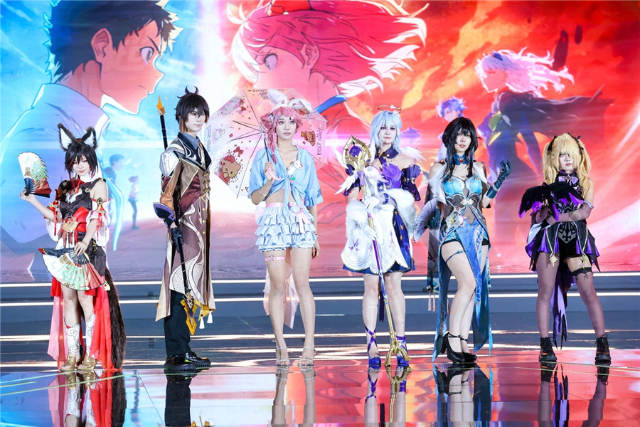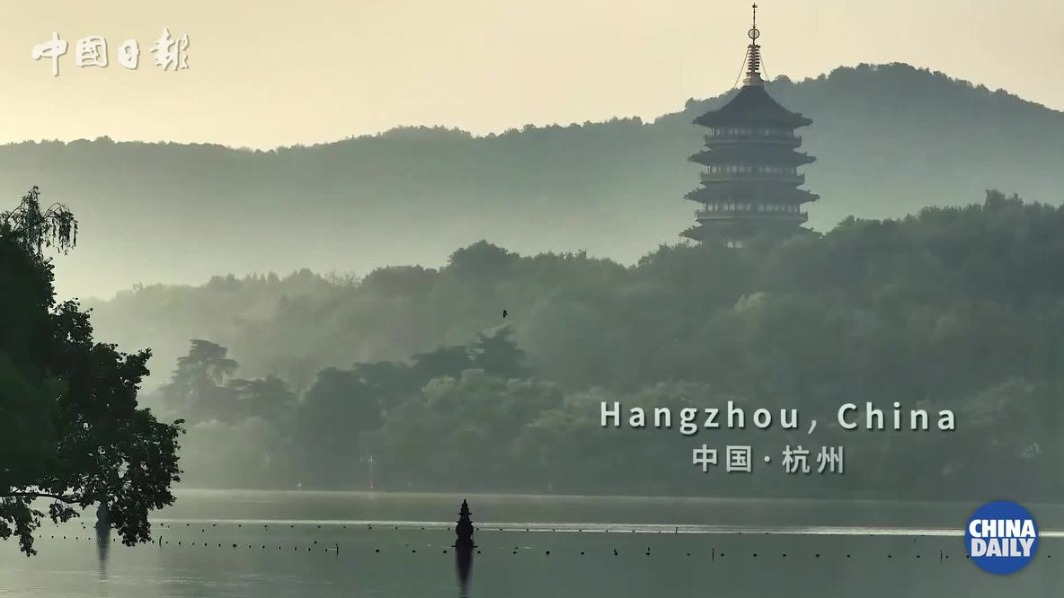biancai and longjing: the monk and the tea
when people speak of longjing (or dragon well), what images pop into your head? most probably tea. "what do you drink?" "i drink longjing." "tea" is no longer needed here, for longjing has long been synonymous with the tea that has the same name.
longjing as a place has certainly gained much fame from its high-quality green tea. in fact, the locality was already quite well-known 1,000 years ago, thanks to its charming scenery and the monk and the temple he helped rebuild.
popularly referred to as biancai, or master dharma debater, a title bestowed by emperor renzong of song (1010 1063), the monk was renowned not only for his mastery of buddhist knowledge and practices, but also for his poems. many believe it is biancai's close relations with those poets and his own poems on longjing that have elevated the status of the place to unprecedented levels.
one of biancai's "ten poems on longjing" reads:
standing out among hills and mountains, lion peak it is called.
roaring without any sound needed, it appears and disappears amid mist and cloud. ("the lion peak")
another reads:
amid pavilions and stones, is hidden the mansion of a dragon.
the source of its clean spring never ends, for bountiful rains fall even in dry years. ("the longjing pavilion")
intentionally or not, these poems became the perfect advertisements for longjing. remember the last time you felt the urge to see for yourself the settings in which the story took place, the place where the movie was shot, or the surroundings in which he or she grew up? one example is the cliffs of moher in ireland, which have stood for millions of years. while already widely known, the cliffs became hugely popular after it was revealed that a scene from the harry potter movies was shot there.
although we may never know exactly how many people went to longjing after they read biancai's poems, those poems have undoubtedly helped boost the image of the place, else the lyrical lines imbued with buddhist connotations would have been long forgotten.
born in yuqian county (present-day yuqian township, lin'an district, hangzhou city) in the year 1101, biancai's original name was xu wuxiang. the xu family was known to be very generous and compassionate, regularly doling out food and money to the needy.
when biancai was 10, his parents sent him to yuqian's mingzhi temple on xipu mountain, where he obtained his dharma name yuanjing. a smart and hardworking student, biancai also benefited through learning from several buddhist masters. by 25, biancai's reputation had been well established, and emperor renzong of song, after hearing of his moral integrity, bestowed upon him the title of "biancai" and the purple kasaya, the color of the highest honor.
after serving as abbot in a few temples, biancai came to the longjing temple in 1079. at the time, only a few dilapidated houses remained of the temple because of long periods of disuse. biancai took the challenge on the chin, repaired the premises, and revived the temple.
during his stay there until his death, biancai grew tea on the nearby lion peak mountain, which he often used to treat his poet friends and fellow monks. this, according to some, was the earliest known longjing tea, and biancai therefore should be regarded as the "father of longjing tea". later, emperor qianlong (1711-1799), who visited longjing four times, wrote "eight scenery poems on longjing" in a similar vein to biancai, in which he also spoke of the last phase of the monk's life in longjing.
it has yet to be determined whether biancai is truly the "father of longjing tea". what is certain is that when you drink the longjing tea or visit the place next time, you may well remember biancai and even his poems.
-
'nice' to meet you, hangzhou
may 6, 2024

